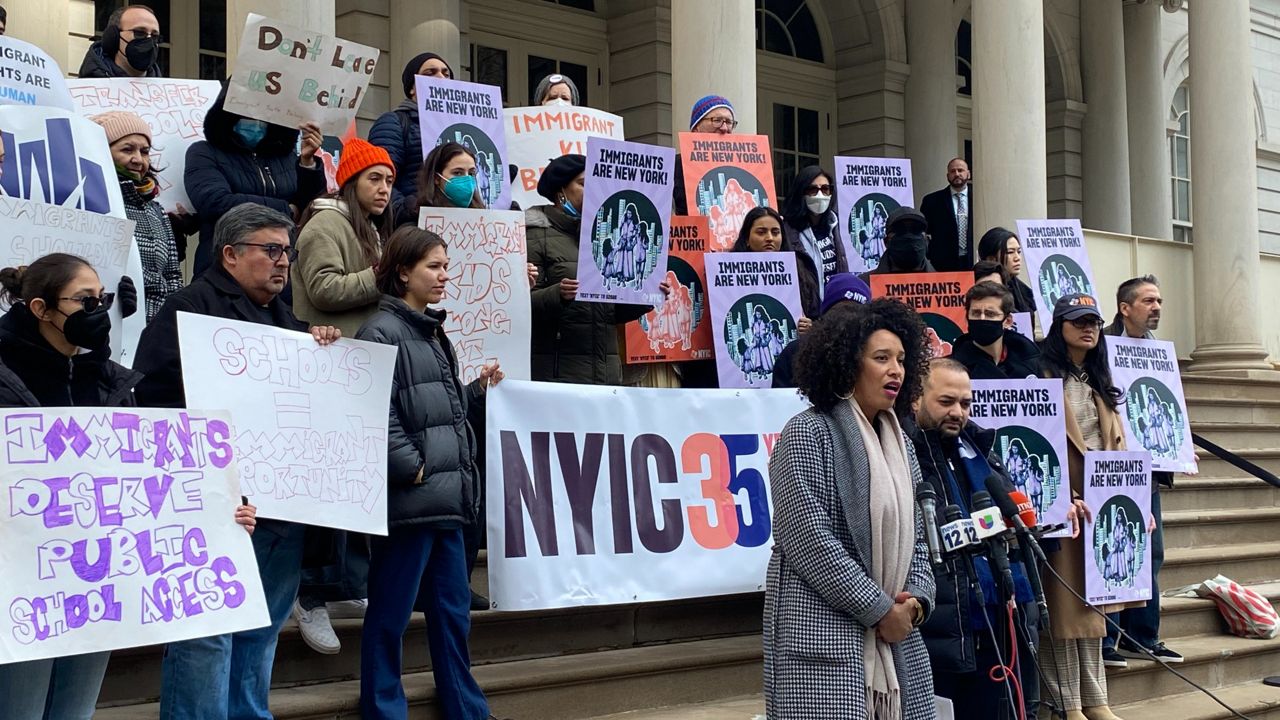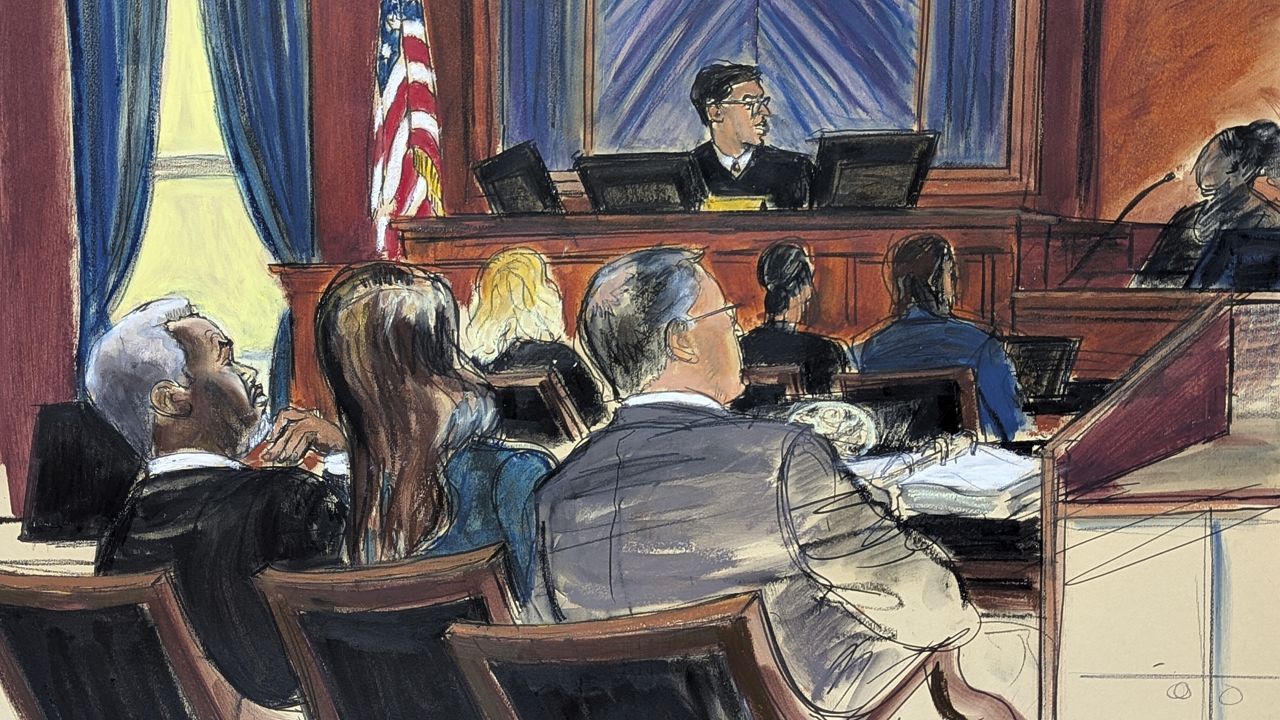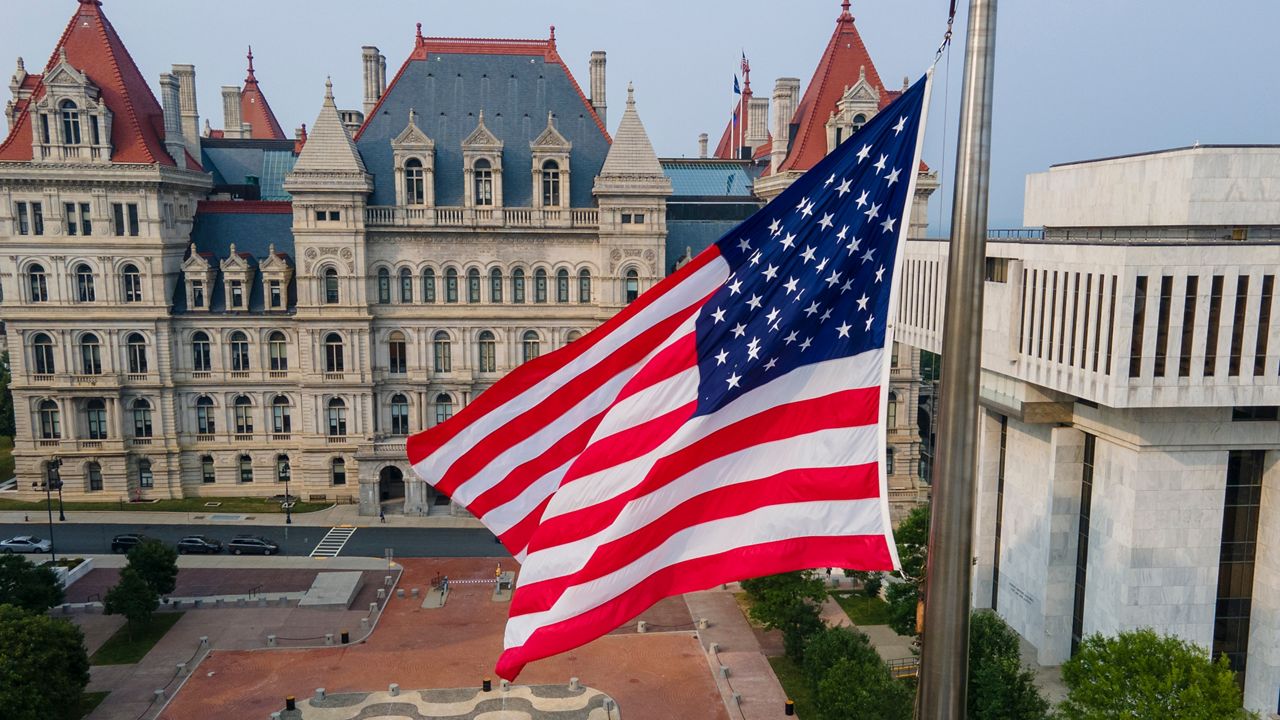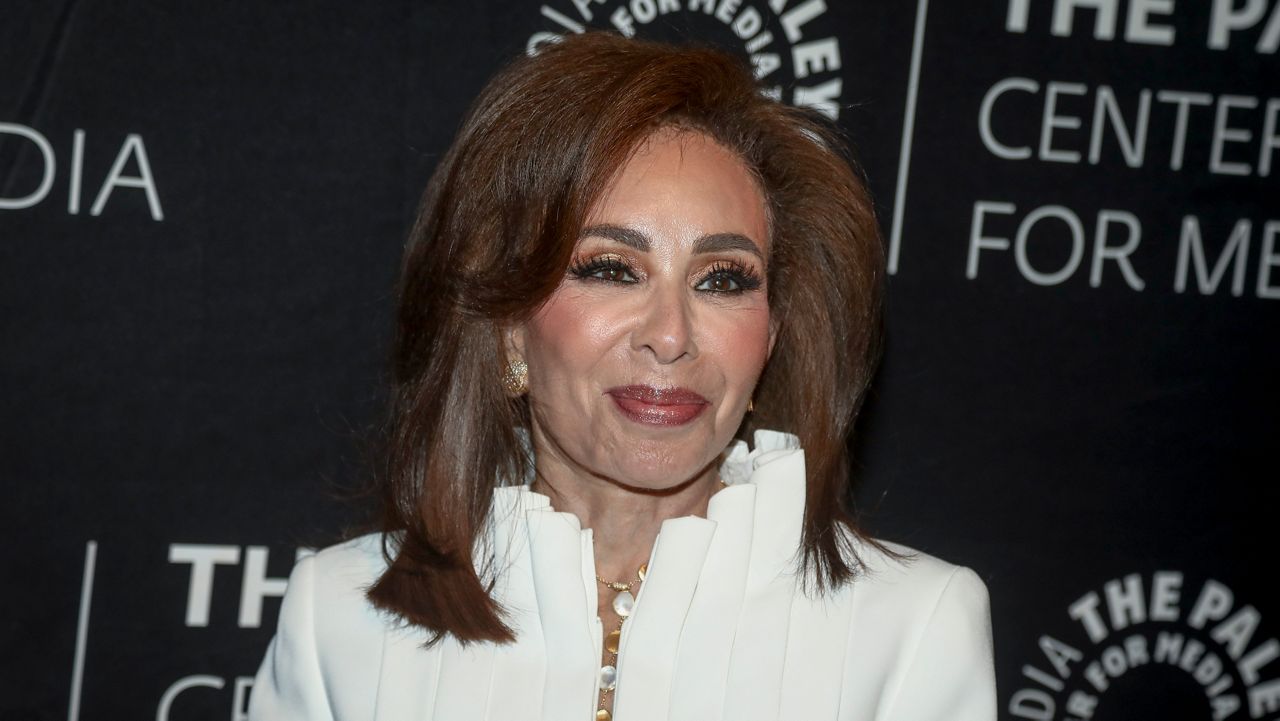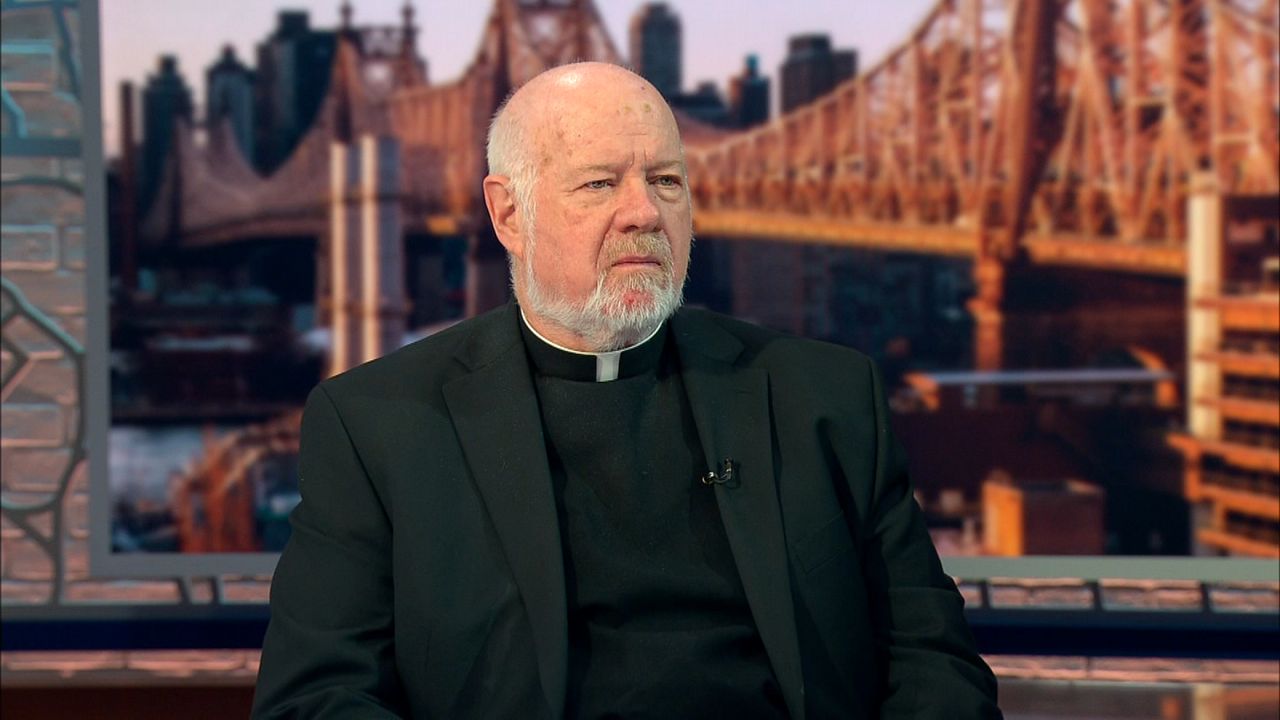Advocates gathered outside City Hall on Friday to criticize Mayor Eric Adams' handling of the migrant crisis, a day after he delivered an address they said spent too little time focusing on the issue.
Standing on the steps of City Hall, Murad Awawdeh, the executive director of the New York Immigration Coalition, also criticized the mayor's budget for not doing enough to help immigrants, saying the mayor “effectively eras[ed] immigrants from his vision for New York City,”
Awawdeh called out the mayor for “briefly mentioning asylum seekers before moving on to other priorities” during his State of the City address Thursday at the Queens Theatre.
In Thursday’s address, Adams called on the federal and state governments to help shoulder the growing cost of what he described as the city’s “asylum seeker crisis,” but did not elaborate on the city's plan beyond a call for federal and state aid.
Roughly 42,000 people have arrived in the city since the spring, according to the mayor.
Advocates said the issue is not in fact a “migrant” crisis, but a crisis around affordability and shelter.
“The bigger issue is making sure that we have a pathway to integrating folks in a real way to make sure that they are supported out of shelter,” Awawdeh said.
In addition, advocates pushed back against what they described as Adams’ scapegoating of asylum seekers, including his declaration that the city is “at a breaking point.”
"It’s shameful that Mayor Adams is blaming our most vulnerable neighbors for this administration's own lack of action," Awawadeh said.
On Tuesday, the mayor suggested that the city’s right-to-shelter law, which guarantees temporary housing for those without it, did not extend to asylum seekers.
“Now, when we talk about a sanctuary city that is codified in law, there was a lawsuit, and this is a state and city of law and order. The courts rule that this is a sanctuary city. We have a moral obligation to fulfill that,” Adams said on WABC’s “Sid & Friends in the Morning” radio show.
“[But] we don’t believe asylum seekers fall into the whole right-to-shelter conversation,” he added. “This is a crisis that must be addressed based on what was created on [a] national platform.”
His office then seemed to walk back that sentiment, stating the “suggestion that the city is flouting its legal obligations couldn’t be further from the truth,” according to press secretary Fabien Levy.
In December, Congress passed a federal spending bill that will provide $800 million to cities like New York that have been taking in asylum seekers.
The omnibus bill, shepherded by Sen. Chuck Schumer, passed with the understanding that a “substantial share” of that funding would go to New York, according to an official from his office.
Awawdeh on Friday went on to critique the mayor’s preliminary budget, released earlier this month, for not investing enough in programs that would help immigrants.
The mayor’s budget has faced scrutiny from what critics are calling his “austerity cuts” in areas like public colleges, social services, libraries and early childhood education.
“The mayor’s preliminary budget also largely excluded us,” Awawdeh said. “That means Mayor Adams’ vision for New York doesn’t include the working families and immigrant New Yorkers who make this city work.”
“We all know that budget priorities reflect what we value the most in our society, and this budget is turning its back on children and caregivers,” added Aracelis Lucero, executive director of Masa, a nonprofit based in the Bronx.
Critics say those proposed cuts are a stark contrast to the funds allocated for law enforcement and surveillance.
On Friday morning, the mayor and Gov. Kathy Hochul gave an update on subway safety, where they discussed the state’s allocation of $62 million to overtime for NYPD officers in the subway system.
“That same amount of money could pay for 4,000 permanent housing vouchers for families across our city,” said Joe Loonam, housing campaign coordinator at VOCAL-NY.
According to the Independent Budget Office, a nonpartisan budget watchdog group, the city is expected to have a “sizable” budget surplus of more than $2 billion by the end of the year.
And a December report from the city comptroller’s office predicts a $256 million surplus in FY2023.
“Our mayor has pushed an austerity mindset in a time where there's a massive budget surplus and massive crisis of poverty in our city that's growing every single day,” Loonam said.




